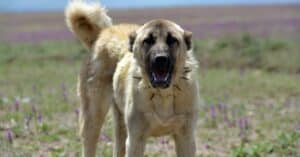Continue reading for our analysis...
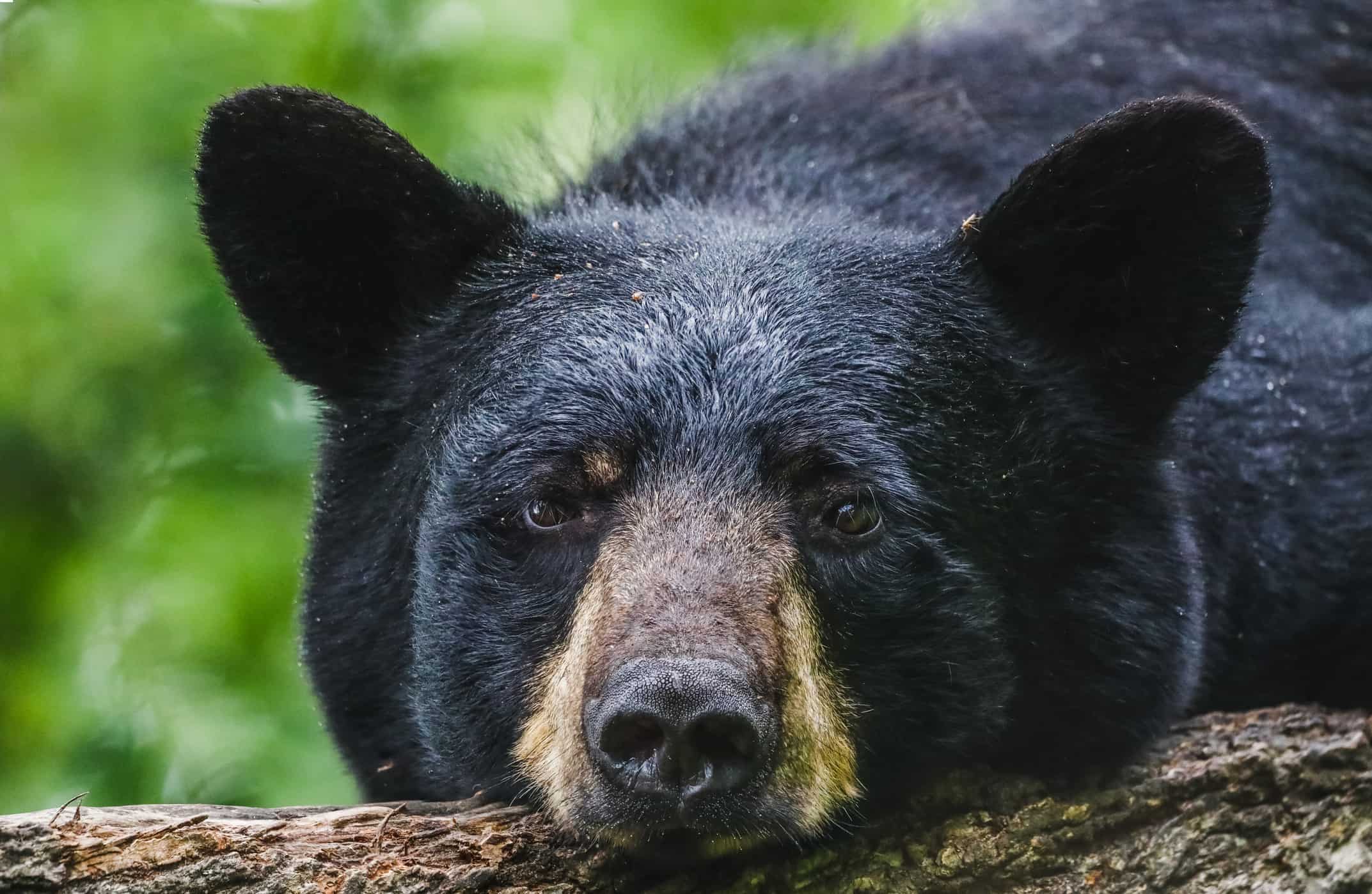
Humans are not the only ones who like to take a cooling dip to escape the Florida sun. This bear was caught on camera at a beach in Destin, Florida. It frolicked in the shallows and then headed further from the beach for a proper swim! Watch the full footage of a not-so-ordinary sight on the beach!
Do Bears Usually Live in Florida?
Yes! According to the Florida Fish and Wildlife Conservation Commission, the black bear population in Florida has been expanding and is currently around 4,000. When it comes to habitats, they prefer areas with a dense understory. These are areas where there are stunted trees and other small trees including saplings, shrubs and vines, and general undergrowth. This is where they will find the best shelter, corridors for moving around, and the most food.
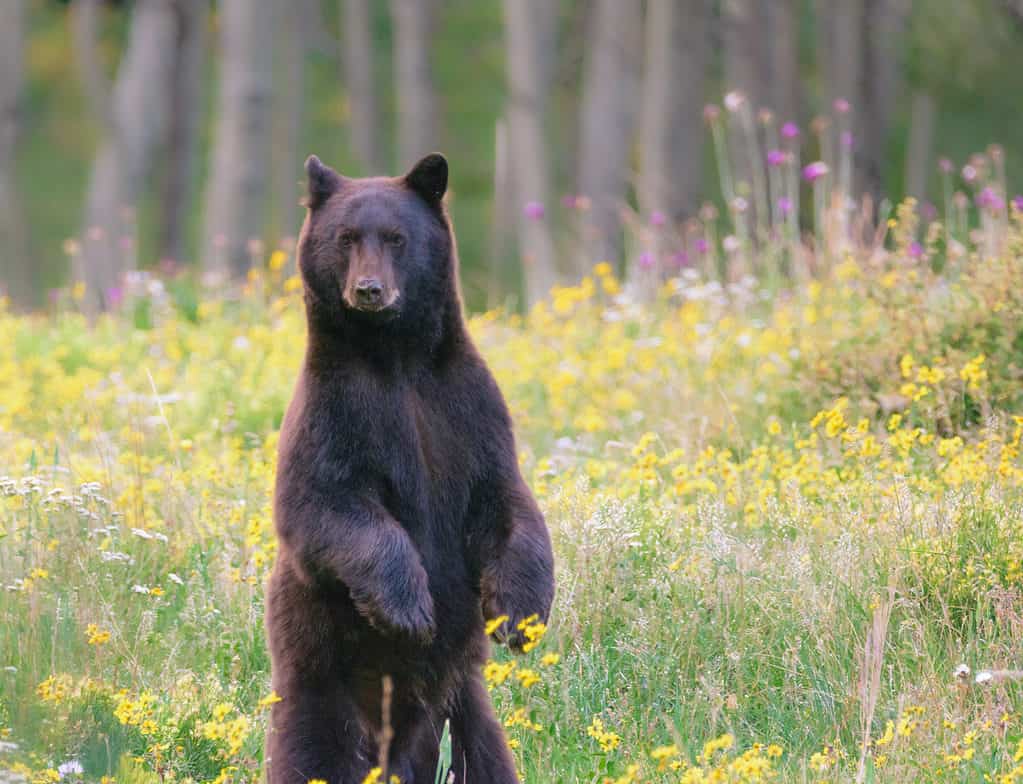
Black bear numbers are increasing in Florida.
©Constance Mahoney/Shutterstock.com
However, you will also find black bears in flatwood forests, swamps, scrub oak ridges, and bay heads. Even though bears are omnivores, most of their diet is made up of plant material. There are plenty of nuts and fruits in Florida and that is why they like to live there. There are 19 species of oaks native to Florida and each of them produces very tasty acorns which are a particular favorite of bears. Bears also love the palmettos (Serenoa repens) that grow in the state. They eat the heart of the plant and the seasonal berries. Female bears also use the protection of the plant to build dens where they give birth in late January or early February.
What Threatens Black Bears in Florida?
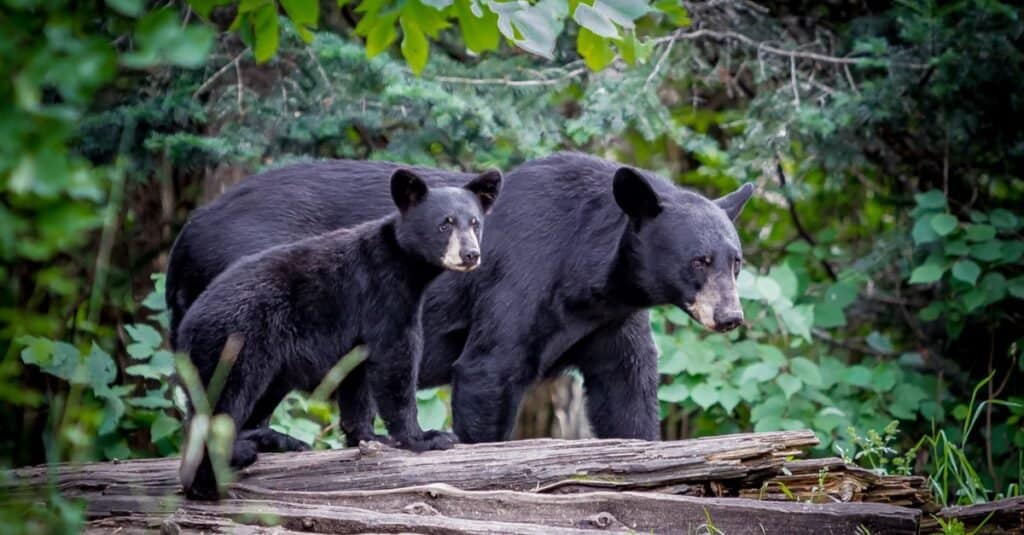
Once they are adults, bears have no predators apart from humans and other bears.
©jo Crebbin/Shutterstock.com
Bear cubs have a pretty hard time of it and up to half of them die before they are a year old. Most black bear cub deaths in Florida are caused by drowning, starvation, infections, and injuries. Some also die from den cave-ins and hypothermia in their flooded dens.
Once they are adults, they have no predators apart from humans and other bears. However, the main causes of death are vehicle collisions, starvation, and poaching. Sadly, an average of 200 bears are killed every year on Florida’s roads. Beaches look pretty safe though!
Is it Normal For Bears to Go For a Swim?
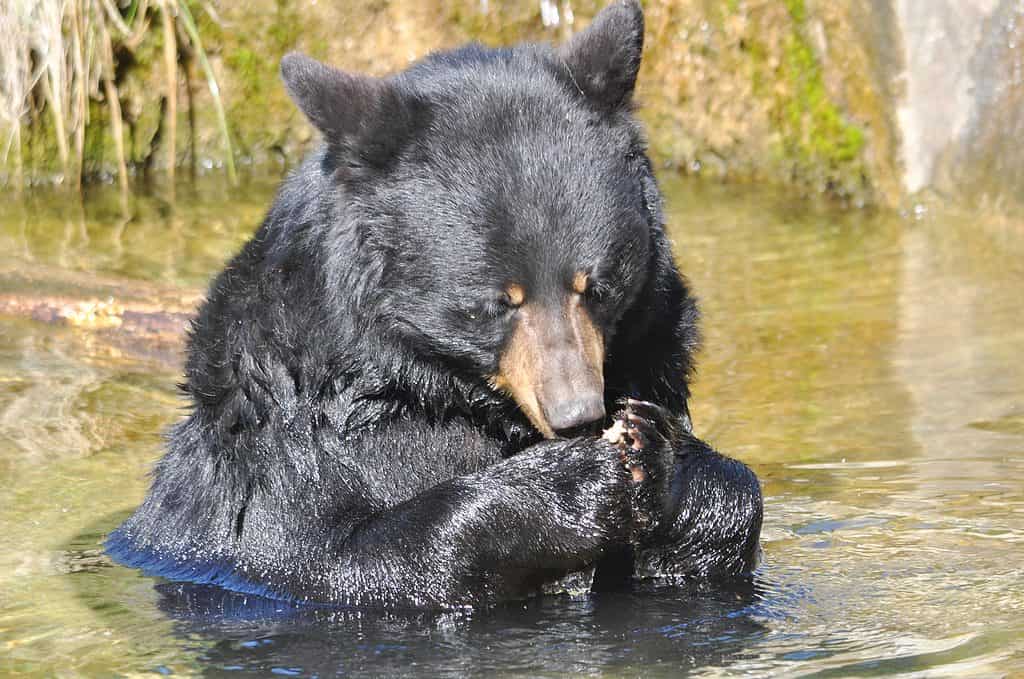
Once they are adults, bears have no predators apart from humans and other bears.
©Elizabeth Caron/Shutterstock.com
Polar bears are by far the best swimmers but for all bears, going in the water is a normal part of their day. Brown bears and black bears alike will go in the water to hunt for salmon in the spring and black bear cubs take to the water easily and quickly. Bears swim twice as fast as the average swimmer and may frequent lakes and rivers but it isn’t as common to see a bear on the beach. Brown bears have a known love of water and it’s common to see bears going for swims, even sneaking into pools, to cool off.
According to the Florida Fish and Wildlife Conservation Commission (FWC), while it is unusual to see a bear swimming in the shallows of a crowded beach, it isn’t unusual to hear of black bears swimming in the Gulf, on their way to barrier islands in search of food.
Thank you for reading! Have some feedback for us? Contact the AZ Animals editorial team.





